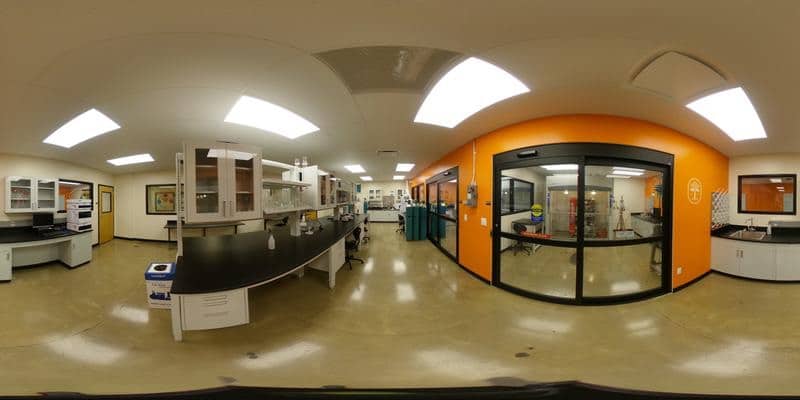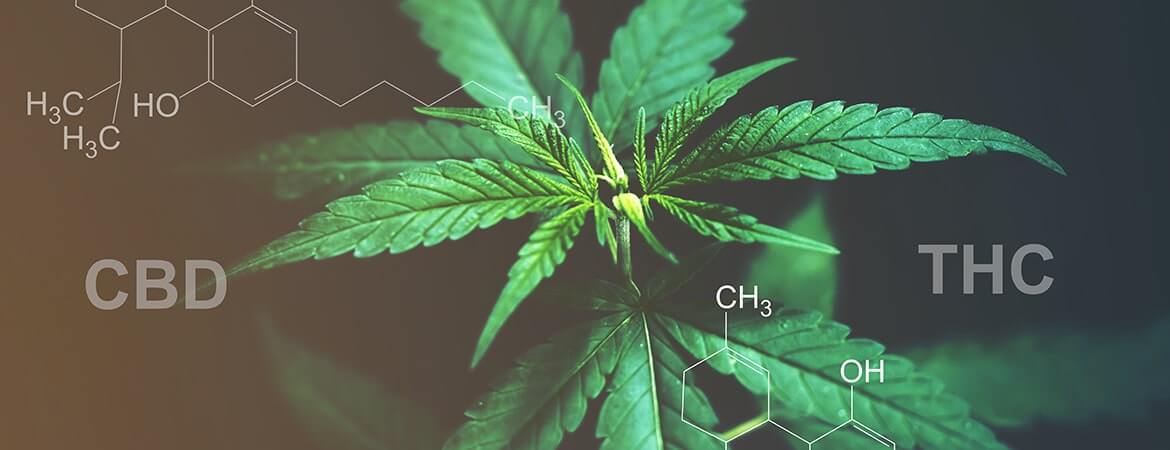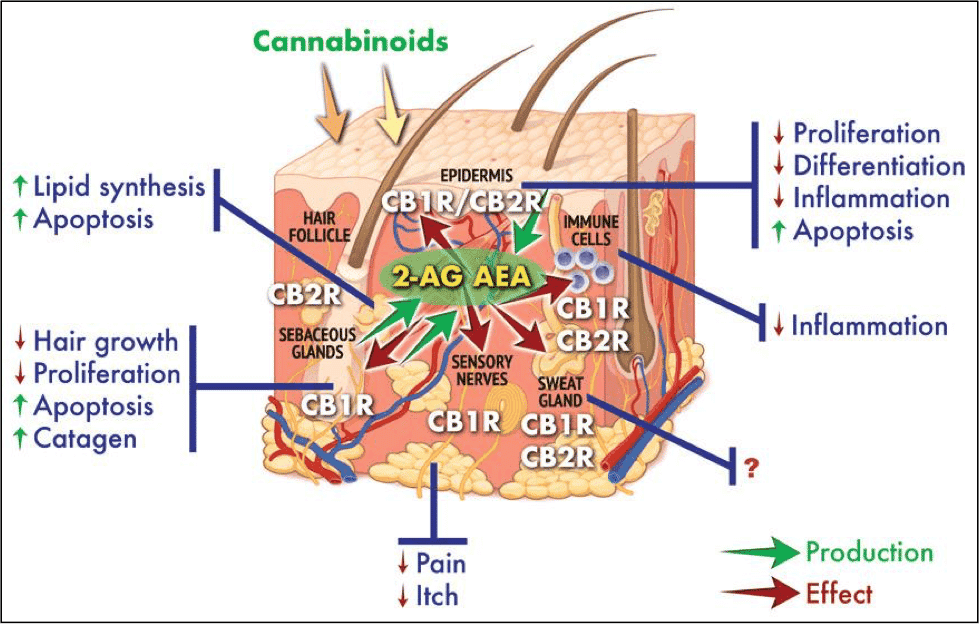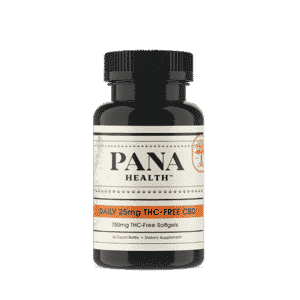Cannabidiol, better known by its three-letter acronym, CBD, is a compound that may have health benefits for many people. For this reason, many people have started to consume CBD regularly. They may have it before they go to bed, in the morning or in some cases, both. CBD is non-habit forming and non-psychoactive, which means that people may generally consume it to improve overall health.
People who use CBD often wonder how long it stays in their systems. To answer this question, let’s first take a look at what CBD is and how the body processes it. From there, we may analyze how long it takes to leave our bodies.
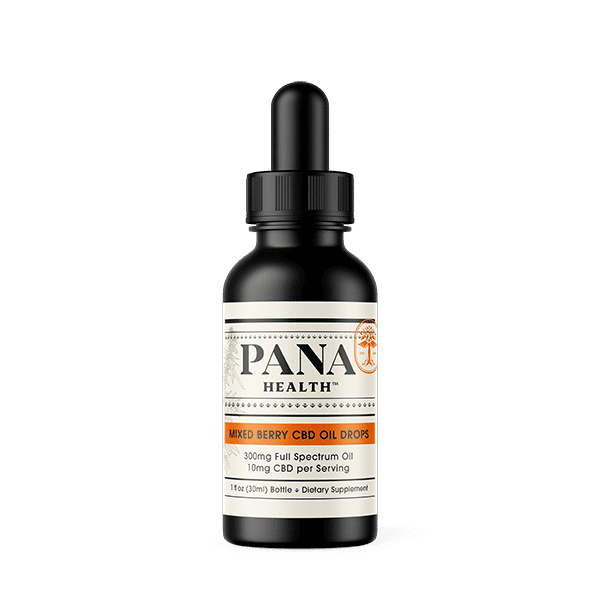
What is CBD?
The Cannabis plant family, including Marijuana and Hemp, has chemical compounds called “cannabinoids.” These are chemicals that are unique to the Cannabis plant. There are 113 specific compounds within Cannabis classified as cannabinoids.

-

CBD Softgels for Sleep
From: $33.95 Select options This product has multiple variants. The options may be chosen on the product page -
Sale!

Mary’s Restore CBD Moisture Balm
Original price was: $19.95.$14.95Current price is: $14.95. Add to cart -
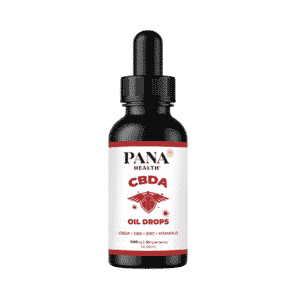
CBDA OIL DROPS (Full Spectrum)
$24.95 Add to cart
CBD is one of those cannabinoids. Tetrahydrocannabinol (THC), the psychoactive ingredient that evokes a high feeling, is another cannabinoid. There are other substances such as Cannabigerol (CBG), Cannabichromene (CBC), Cannabinol (CBN), etc. that all exist in the plant.
Each strain of Cannabis and each plant itself has different ratios of these cannabinoids. Most CBD within the United States comes from the Hemp plant. Hemp is, by definition, low in THC. To be legally called Hemp, the THC content must be below 0.3%. However, even though Hemp lacks THC, it’s still rich in other cannabinoids, such as CBD. The CBD you consume comes from the Hemp and not the Marijuana, which makes it legal.
Why does CBD affect our bodies?
How CBD and THC produced their effects on our bodies was a mystery until the 1990s when researchers first identified what they called the “endocannabinoid system.” This system gets its name from the prefix “endo,” which means “within” and cannabinoid because the chemicals that bound to are cannabinoids.
The endocannabinoid system was first described as two receptors named CB-1 and CB-2. Our definition of the endocannabinoid system has increased with more research. There are now as many as 70 receptors and enzymes that cannabinoids interact with to exert biological responses. Each receptor has a different function within our bodies and binds with different cannabinoids. Concentrate on the interactions with CB1 and CB2 to highlight how one molecular can have so many reported effects. For example, CB-1 receptors bind very well with THC but do not link well with CBD. This lack of binding is why THC has the “high” effect that it does, but CBD does not.
CBD affects the CB-2 receptors, which are throughout our entire bodies. They are in our skin, immune cells, heart, blood vessels, and other organs. CB-2 receptors appear to have multiple purposes, including signaling pain and invoking an immune response.
How do our systems process it?
How our body processes CBD depends mostly on how someone uses it. There are three primary ways to take CBD. People either ingest, inhale, or apply CBD topically. Most people elect to take an oral supplement (like CBD oil drops) or use it topically (as in a CBD cream).
For people who ingest CBD orally, their digestive systems first process the compound. It goes into the stomach and then eventually ends up in the liver. The liver breaks down some of the CBD molecules and passes the rest on to the bloodstream.
Some people don’t eat CBD but instead, place a few drops under their tongue. In this case, the membranes in our mouths may transfer this compound to the bloodstream directly, bypassing the liver. If you’re looking to get as much CBD out of the oil as you can, putting it under your tongue is the best way to do that.
Inhaling CBD is another possibility. Much like smoking, when you inhale the compound, it is absorbed through the lungs (the alveoli, to be precise). The CBD molecules wind up on the alveoli and get sent directly to the bloodstream. However, it is important to remember that vaping has been associated with several injuries and some deaths.
With each of these ingestion methods, the CBD chemical reaches the bloodstream. Once CBD is in the blood, your liver takes over. Your liver sorts through all compounds in the blood and works to remove foreign material such as CBD by metabolizing the compound or making chemical modifications to target the molecule for disposal. The metabolites or chemical modifications of CBD will send these molecules to targeted destinations for removal. From there, your body removes these metabolites via feces and urine. CBD is mostly excreted through feces, with some eliminated through your urine.
For topical applications, the method of staying in the system is different. Most of the CBD that you apply to a sore knee or a swollen leg never enters the bloodstream. It affects the receptors specifically expressed in the skin, such as localized CB- CB-2 receptors and which provides localized improvements in skin health.
How long does CBD oil last in your system?
The question of how long does pure CBD oil last in your system depends partly on how we take it.
For oral ingestion, there’s evidence that when taken are moderate doses, CBD remains in our systems for 1-2 days. However, there hasn’t been a lot of research on this topic, and due to this, estimates vary. Another study suggested that the half-life of CBD is around 18-32 hours. This statistic means that if you ingest 100 ml of CBD, then within 18-32 hours, you’ll have 50 ml left in your system. Some reports have CBD as remaining in your body for as long as 3-4 days. On average, though, you should expect some CBD to stay in your body for a couple of days, but not much longer.
It’s worth noting that many factors go into how long CBD remains in our systems. For example, CBD is fat-soluble, so our bodies will store it within our fat cells. If you exercise a lot and burn off fat, then you’re more likely to get rid of the CBD particles faster than someone who is sedentary. Additionally, if you have more body fat, CBD will stay in your body for a longer period of time. With that all said, on average, users may expect to see CBD leaving their body by a couple of days at the most.
Higher doses of CBD may also have an effect on how long the CBD will stay in the body as opposed to small doses. As with any substance, your liver may only filter so much at once. You may think of your liver as the cleaning service for your blood, and it may break down a certain amount of substances from your blood per hour. As a hypothetical example, suppose your liver may break down 50ml of CBD per hour. If you ingest 600ml, CBD will remain in your system then for 12 hours. However, if you ingest 100ml, CBD will be eliminated in two. Of course, real biological processes are more unpredictable than that. Still, the general premise is the same – taking significant quantities of CBD will mean it stays in your body for longer.
If you take CBD as a lotion, virtually no CBD enters your bloodstream, so it won’t “stay” in your system, per se. Instead, it will remain on the skin layer and may provide your joints some much-needed relief.
Why is this information relevant?
Often when people want to know how long CBD remains in their systems, they’re trying to answer one of two questions. Either they want to know how long they may expect to feel the effects, or they want to know how long CBD would be traceable for a drug test.
For the first question, users may typically feel the effects of CBD for 2-6 hours depending on what form of CBD is consumed. Usually, people first start reporting feeling better within 20-30 minutes of ingesting oral CBD. Recall that there are different ways to consume CBD. Those who inhale or vape CBD particles will find that the effects start much quicker (and possibly dissipate faster) than those who take CBD orally. For people who have CBD lotions, they may also expect to feel the effects of these creams for about 5-6 hours. After that, the positive results of CBD diminish.
Some people are worried about taking CBD for fear that it might show up on a drug test. Even though CBD is generally legal, people may be worried that testing positive for CBD would somehow imply that they are smoking Marijuana. After all, both compounds come from the Cannabis family of plants.
You may be asking: How to get CBD out of your system fast? However, CBD is not typically tested in common drug tests or urinalysis. Common urine tests monitor whether an individual has consumed intoxicating or controlled substances such as heroin, cocaine, alcohol, or THC.
Although all hemp products must contain less than 0.3% THC this small amount may trigger a positive response for THC usage. If you are worried about drug testing, the only products you should consume are CBD isolate or broad spectrum which contains no detectable THC. Ensure that the company you purchase products from has sufficient quality control to ensure you are not consuming any THC product. Consuming pure CBD products will not result in a positive THC test.
Therefore, how long CBD stays in your system is not likely to have any bearing on drug tests. You may feel free to take CBD in any way you want, and your employer or the state never needs to know.
What effects will CBD provide?
Studies regarding the benefits of CBD have generally been reassuring. The FDA cleared CBD for the treatment of epilepsy conditions. Studies have also shown that CBD may help with anxiety, depression, mood stability, and pain relief. Researchers have also posited that CBD may be useful for other conditions as well. Studies have shown it may be able to reduce high blood pressure. Other studies have shown that it may have neuroprotective effects that may help alleviate tremor symptoms in Parkinson’s Disease patients and that it may also benefit heart health.
Much of the research into these CBD effects is ongoing with new results reported daily. What we do know is that the initial body of research has been incredibly promising.
Find the right CBD product for you
When it comes to CBD, the key is to find the right product that suits your needs. If you are looking for longer-lasting effects, then an oil might be the best option for you. If you are looking for localized skin health, then the creams are the best option.
While CBD may stay in our systems for as long as 3-4 days, on average, it leaves within a couple of days. You will experience the effects of CBD for approximately 2-6 hours if you ingest it orally. If you apply it topically, you may expect the impact to last around 6 hours and be incredibly localized. CBD creams are a fantastic option for achy joints, whereas CBD oils are better if you want general pain relief or to feel less anxious.
When it comes to how long CBD stays in your system and if it is detectable in a drug test, again, quality matters much more than quantity. CBD brands that focus on quality and purity are much more likely to remain in your body for longer and be less detectable than those with impurities. If you want to experience the benefits that CBD may have for you, look for a high-quality oil or cream and check it out for yourself!

